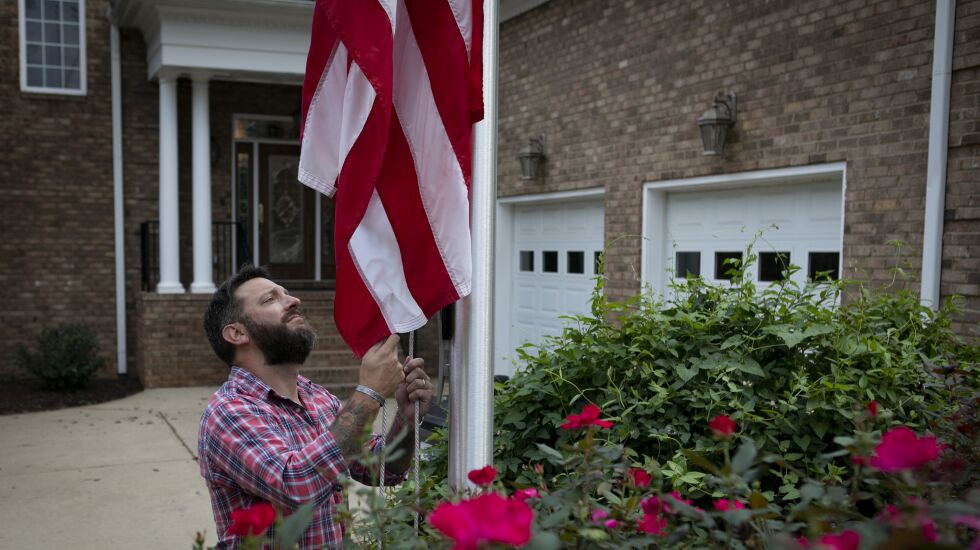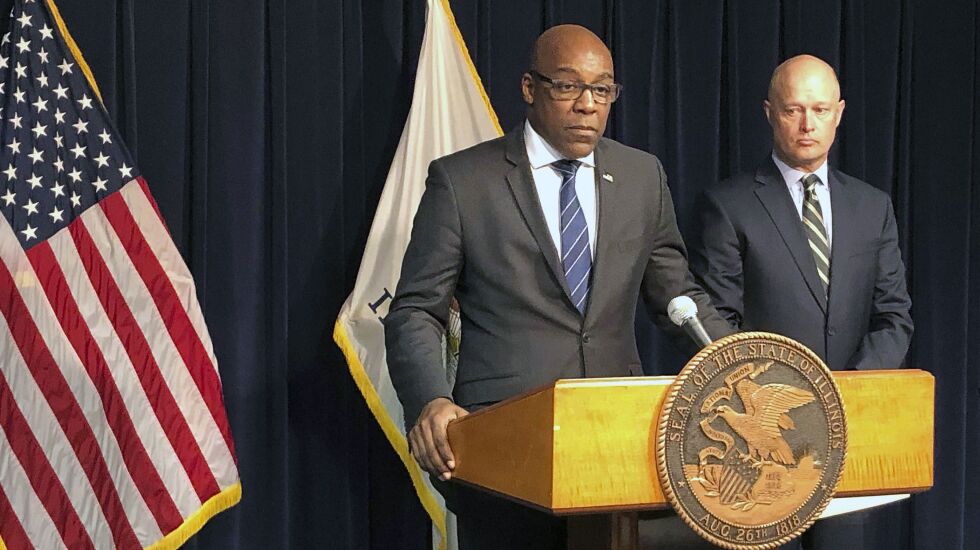
Illinois Attorney General Kwame Raoul and 32 other attorneys general are backing a bid by a veteran, a former decorated Army officer, who’s asking the U.S. Supreme Court to restore GI Bill college benefits in a case that could affect millions of long-serving vets.
Raoul joined a friend-of-the-court brief filed by Virginia Attorney General Jason Miyares supporting a petition filed last month by James Rudisill. The others include the top state legal officials in Wisconsin, Iowa and the District of Columbia.
Other Democratic and Republican elected officials also have signed the brief supporting Rudisill.
The filing asks the Supreme Court to take the case, arguing that veterans like Rudisill who earned educational benefits under two versions of the GI Bill — the Montgomery GI Bill and the Post-9/11 GI Bill — are being shortchanged on college benefits.
Under federal law, veterans can get college money under both plans, up to a maximum of 48 months.
But Rudisill discovered that the federal Department of Veterans Affairs has a narrower way of calculating benefits for vets who first used a portion of their Montgomery benefits before choosing to tap their Post-9/11 benefits.
For those veterans — the VA estimates there are about 2 million of them, vets who served at least six years and earned benefits under both plans — the VA’s math essentially limits them to 36 months, shorting them by 12 months.
That meant Rudisill couldn’t afford to follow his dream and attend Yale University to earn a divinity degree, which he hoped to use so he could return to the Army as a chaplain and help soldiers suffering from post-traumatic stress disorder and other issues.
Rudisill sued and won two times in court. But his most recent victory was overturned on appeal. Now, he’s asking the Supreme Court to step in. There’s no timetable for the high court to say whether it will agree even to hear the case.
Raoul says Congress’ intent was to provide expansive benefits and that vets like Rudisill should get the full 48 months they earned.
“The men and women who have served in the military deserve our recognition and support for the sacrifices they and their families have made to protect our nation,” Raoul said in announcing the filing.

Additional supporting briefs were submitted by the National Veterans Legal Services Program, seven affected veterans and Edison Electric Institute, which argues that veterans need full educational benefits to get jobs in the energy sector.
The government has asked for more time to respond to the petition. Their response is due May 15.
Rudisill first enlisted in the Army in 2000. After getting out in 2002, he used some of his Montgomery GI Bill benefits for college. While a student, he joined the Army National Guard and eventually became a commissioned officer in the Army.
Over those periods of service, he did two tours of duty in Iraq and one in Afghanistan, where he was wounded by suicide bomb attacks and roadside bombs. As a platoon leader in Afghanistan, he helped save lives by turning back a Taliban attack while directing medical evacuations under fire. He was awarded the Bronze Star, among other other honors, and reached the rank of captain.

Rudisill, who lives in Virginia, left the Army in 2011. He became an FBI agent and has investigated ISIS supporters and white supremacists, among other cases for the agency.
But he says that after re-entering civilian life he was troubled by the incidence of PTSD among veterans and wanted to return to military service as a chaplain — a dream that was thwarted when his GI Bill benefits were cut short, which left him unable to afford the Yale program.
Rudisill’s lawyers argue that under a series of court rulings that comprise what’s known as the “pro-veteran canon” the scales are supposed to tip in favor of veterans whenever there is any ambiguity in a veterans law or regulation because vets risked their lives to serve their country.
Many long-serving veterans have earned both Montgomery GI Bill and Post-9/11 GI Bill benefits. Service members contribute money to the Montgomery plan, which took effect in 1985 and will be phased out in 2030. Post-9/11 GI Bill benefits, which were established in 2009, are given automatically to those who qualify.







